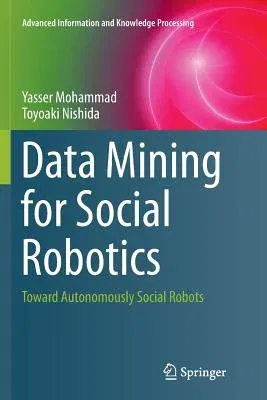Yasser Mohammad
(Author)Data Mining for Social Robotics: Toward Autonomously Social Robots (Softcover Reprint of the Original 1st 2015)Paperback - Softcover Reprint of the Original 1st 2015, 30 March 2018

Qty
1
Turbo
Ships in 2 - 3 days
In Stock
Free Delivery
Cash on Delivery
15 Days
Free Returns
Secure Checkout

Part of Series
Advanced Information and Knowledge Processing
Print Length
328 pages
Language
English
Publisher
Springer
Date Published
30 Mar 2018
ISBN-10
3319797557
ISBN-13
9783319797557
Description
Product Details
Authors:
Book Edition:
Softcover Reprint of the Original 1st 2015
Book Format:
Paperback
Country of Origin:
NL
Date Published:
30 March 2018
Dimensions:
23.39 x
15.6 x
1.8 cm
ISBN-10:
3319797557
ISBN-13:
9783319797557
Language:
English
Location:
Cham
Pages:
328
Publisher:
Weight:
480.81 gm